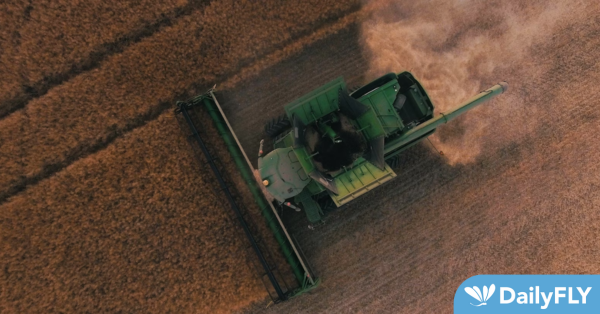(The Center Square) – Supporters of small farmers and regenerative agriculture are hoping that the 2023 U.S. Farm Bill will make it easier for consumers to buy locally grown food. That has been the goal of the Illinois Stewardship Alliance for more than 20 years.
Marty Travis, a member of the alliance, farms in Fairbury, Illinois. Travis believes that more local and regional food production will give Illinoisans better food and provide a valuable economic lifeline for declining rural communities.
“We need to be feeding our kids better. We need to be feeding our seniors better. We need to be feeding our communities better,” Travis said.
Travis says growing more local food makes more sense than what happens now with most of the food that people in Illinois eat shipped in from California and other places.
In addition to running Spence Farm in Fairbury for two decades, Travis has been advocating and selling food for a group of small farmers in Central Illinois who are part of a collaborative called Down at the Farms. Travis markets their products and manages the logistics of getting the food to restaurants and other buyers in Chicago and downstate. To date, Down at the Farms represents 85 small Central Illinois farmers. Travis is actively looking for and recruiting more farmers who want to grow and sell local food.
During the COVID-19 pandemic, the demand for locally grown food “went through the roof,” Travis said. The demand is continuing to grow every year.
“We are going to be supply challenged,” he said. “I have a projection that we need another $4- to $5-million dollars’ worth of product in the next 18 months.”
Expanding local food production brings local dollars to declining local communities, Travis said.
“We have young farmers,14-, 15-, 16-year-olds, who are making $20,000, $30,000 on an acre garden,” he said.
One young farmer graduated from high school with $120,000 in the bank, he marveled.
“We need more opportunities to keep those kids on the farm,” he said.
The 2023 U.S. Farm Bill can give small farmers the ability to scale up, Travis said. Farmers need equipment like cold storage facilities and hoop houses and advice, labor and education.
Travis would like to see the farm bill acknowledge small producers and recognize them for the role that they play in food security, he said. Small growers need one-time investments to help them scale up.
“When dollars go into a local food system, there is a large return on investment that ripples through the local economy,” Travis said.
In Fairbury, there is a community of Black farmers who share equipment, including one tractor. One of the farmers recently used a hand tiller to till three-fourths of an acre by hand.
“A small investment could totally change the ability for them to produce more,” Travis said. “More and more folks in that community would see that they could do that too.”
Travis wants those farmers to have the chance to buy hoop houses so that they can extend their growing seasons and produce greens and root crops in the winter. Other farmers tell Travis that they need walk-in coolers for cold storage.
“They want to know how they can get started,” Travis said.
The farm bill could provide one-time investment money.
“We’re talking about a pittance, compared to the overall big picture,” Travis said. “Small local farmers are not asking for the moon. We’re not looking for a handout … year after year after year. We just need help getting started.”

















